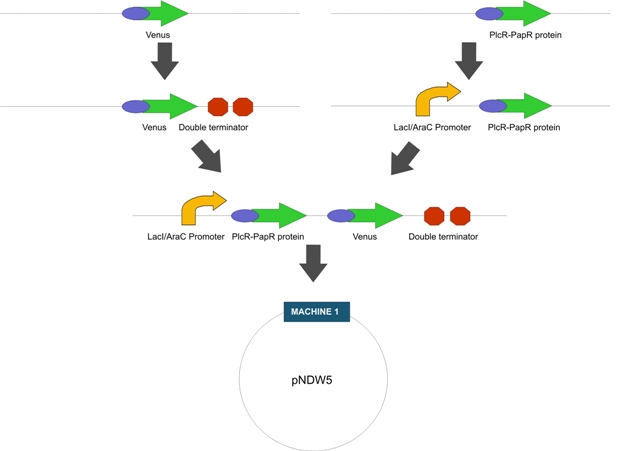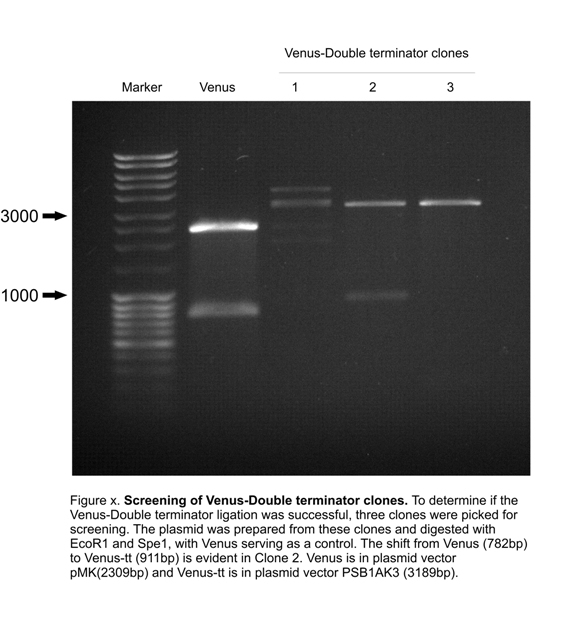Team:WITS-South Africa/Machine Design
From 2010.igem.org
| Line 3: | Line 3: | ||
== Machine Construction == | == Machine Construction == | ||
| - | + | As well as creating the final machines which | |
== Machines Constructed== | == Machines Constructed== | ||
| Line 10: | Line 10: | ||
==== Machine 1 ==== | ==== Machine 1 ==== | ||
| - | Final Machine 1 | + | Final Machine 1 - LactoDetect |
| + | |||
Purpose: | Purpose: | ||
| + | |||
a) To act as the ‘Detector’ Machine within the population and produce the quorum signalling peptide in response to an input signal | a) To act as the ‘Detector’ Machine within the population and produce the quorum signalling peptide in response to an input signal | ||
| + | |||
| + | Construction: | ||
| + | LactoDetect was contructed via a series of cloning steps using the standard assembly method. These are outlined in Figure 1 below. | ||
| + | |||
[[Image: machine_1_small.jpg|650px]] | [[Image: machine_1_small.jpg|650px]] | ||
[[Image:Venus-tt_screen.jpg|350px]] | [[Image:Venus-tt_screen.jpg|350px]] | ||
Revision as of 19:20, 17 October 2010

Contents |
Machine Construction
As well as creating the final machines which
Machines Constructed
Final Machines
Machine 1
Final Machine 1 - LactoDetect
Purpose:
a) To act as the ‘Detector’ Machine within the population and produce the quorum signalling peptide in response to an input signal
Construction: LactoDetect was contructed via a series of cloning steps using the standard assembly method. These are outlined in Figure 1 below.
Machine 2
Intermediate Machines
Intermediate Machine 2 (Figure 1) Purpose: a) To characterise the strength of the induction of the LacI/AraC promoter by measuring fluorescence after IPTG is added b) To show that the PlcR promoter is activated in L. gasseri by measuring fluorescence after the addition of exogenous PlcR and PapR proteins
Fig1. The proposed intermediate Machine 2
Fig 2. The proposed Final Machine 1
Final Machine 2 (Figure 3) Purpose a) To act as the ‘Reporter’ Machine within the population and respond to infection as previously described
Fig 3. The proposed Final Machine 2
 "
"

